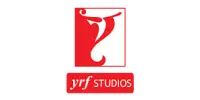In today’s fast-paced, hybrid work culture, how we manage our time has never been more important. Whether you’re a freelancer juggling multiple clients, a project manager overseeing deadlines, or part of an HR team trying to streamline operations—time tracking is at the heart of it all.
But let’s face it: terms like time sheeting, employee attendance app, or project time management can get confusing. That’s why we’ve created this straightforward glossary to help you understand the meaning of time tracking and the key terminology that surrounds it.
Let’s break it all down.
What Is Time Tracking? (Time Tracking Meaning)
At its core, time tracking is the process of recording how much time is spent on specific tasks, projects, or activities. It’s often done using a time tracking app or software to keep everything organized and accurate.
Whether you’re tracking billable hours, checking employee attendance, or managing workloads, time tracing gives visibility into how time is spent across your organization. It’s a cornerstone of employee time tracking, productivity measurement, and even payroll.
Benefits of Implementing a Time Tracking System
- Increased Productivity: When employees track their time, they become more aware of how they allocate their hours. This can lead to fewer distractions and improved focus on high-priority tasks.
- Accurate Payroll: Time logging ensures accurate employee attendance and helps streamline payroll processing. It eliminates errors caused by manual entry and helps ensure employees are paid for the hours they actually worked.
- Better Resource Allocation: Time tracking data helps managers identify which tasks consume the most time and which employees are overloaded. This insight allows for better project time management and resource distribution.
What Is Time Tracking Software?
Time tracking software is a digital solution designed to help individuals and teams monitor how much time they spend on different activities. These tools go beyond basic time keeping software by offering features like:
- Task timers and time entries
- Project-based tracking
- Billable vs. non-billable categorization
- Idle time detection
- Automated reporting
- Integration with project management tools and payroll systems
Popular time tracing tools often double as employee attendance management systems and even offer employee monitoring software features, especially for remote and hybrid teams.
Whether you’re a freelancer looking to log hours for invoicing or an HR manager needing accurate timesheets for payroll, a good time tracking software can help you simplify time management while boosting accountability.
Time Tracking: Essential Terms You Should Know
1. Time Tracking
The process of monitoring and recording work hours. A must-have for managing productivity, payroll, and projects efficiently.
2. Time Log Meaning
A time log is a daily or weekly record of activities and the time spent on each. It helps identify productivity trends and time-wasting habits.
3. Time Sheeting
The act of filling in a timesheet, usually through a digital system, to document hours worked on different tasks or projects.
4. Employee Time Tracking
The use of systems to track when employees start, pause, or finish work. Often used with employee attendance apps or integrated into time tracking software.
5. Time Entry
A single instance of recorded work time, often tied to a task, project, or client.
6. Clock In / Clock Out
Digital or manual systems that allow employees to register at the beginning and end of their workday.
7. Time Keeping Software
Software designed for accurate recording of work hours and attendance—often used by HR or operations.
8. Employee Attendance App
A mobile or web app used to log attendance, breaks, and time-off requests. Many apps also support GPS tracking and biometric login.
9. Employee Attendance Management System
A centralized platform for tracking attendance, leaves, absences, and overtime. Many of these systems integrate with time trackers and payroll management.
10. Project Time Management
The planning and control of how time is allocated to different tasks or milestones within a project. Essential for meeting deadlines and staying within budget.
11. Time Tracker
A timer or app that automatically records work time. Many are part of broader time tracking software that also offers reporting and analytics.
12. Idle Time Detection
A feature in advanced employee monitoring software that pauses tracking during periods of inactivity.
13. Real-Time Tracking
Live tracking of work activities, useful for agencies, remote teams, and teams working on hourly rates or fast deadlines.
Master Time to Master Work
Now that you know the time tracking meaning and understand the important terms surrounding it, you’re better equipped to streamline how you or your team works.
From a basic time tracker to a full-featured employee attendance management system, finding the right tools and understanding the terminology behind them can improve performance, clarity, and work-life balance.
Looking for the right time tracking solution?
Explore Zimyo that integrates seamlessly with your existing systems, supports employee attendance, and even payroll.









FAQs
What is the meaning of time tracking?
Time tracking is recording how employees spend work hours, often using a time tracking app or software to monitor productivity and attendance.
How is time tracking different from time logging or time sheeting?
Time logging tracks task-specific hours, time sheeting records daily/weekly totals, and time tracking combines both in real-time using tools.
Why is time tracking important for work culture?
It builds transparency, improves accountability, and supports a healthier, more productive work culture.
What tools are used for time tracking?
Popular tools include employee attendance apps, time keeping software, project time management systems, and employee monitoring software.
Can remote teams use time tracking?
Yes. Time tracking software and employee attendance management systems are perfect for remote and hybrid teams.



